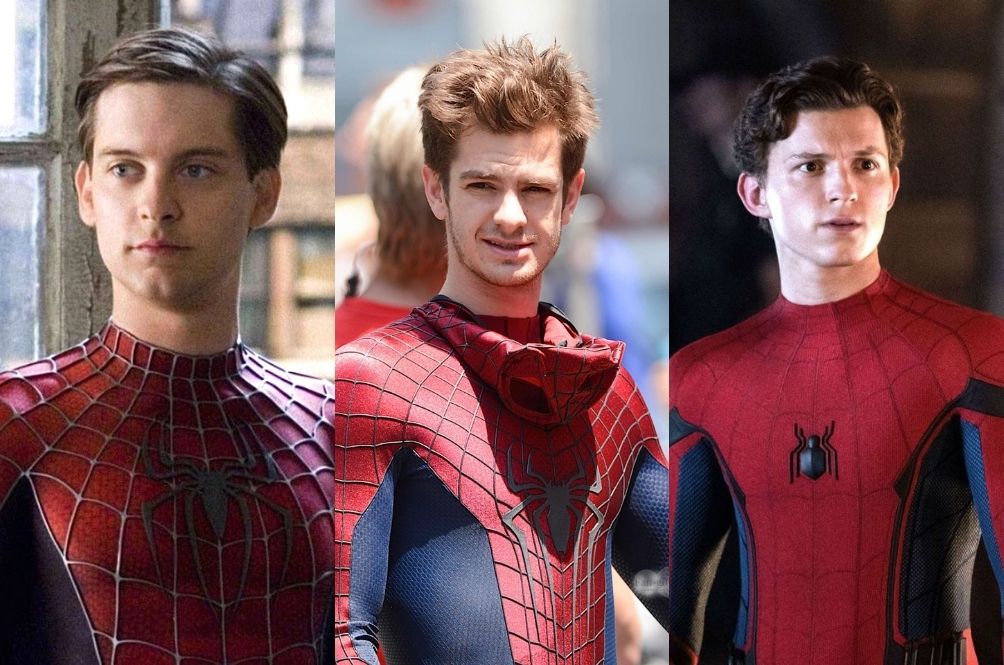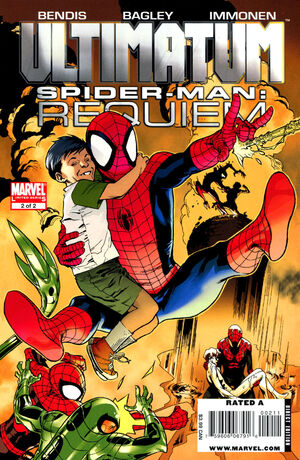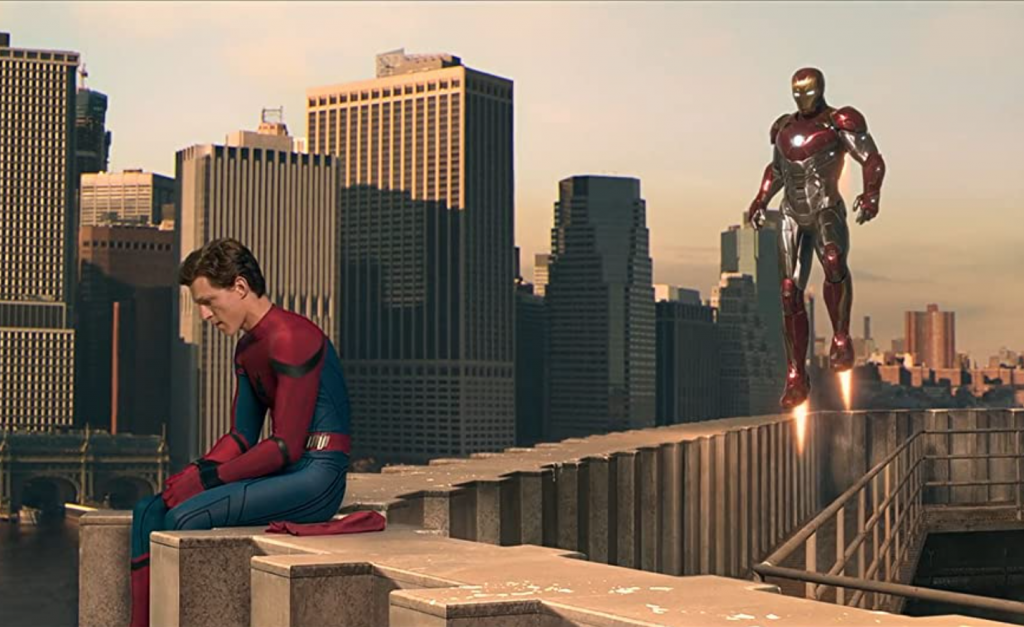
The problem with MCU’s Spider-Man
By Nicholas Cervania, December 1 2020—
Tom Holland is probably the most polarizing Spider-Man actor we’ve had on the big screen.
Some fans love his portrayal, saying that he’s the best on-screen Spider-Man we’ve seen, while others see him as a betrayal of what the character represents. Personally, I don’t like Tom Holland’s Spider-Man. While his performance is fine, I feel like the writers for the Marvel Cinematic Universe (MCU) films have a fundamental misunderstanding of what makes a good Spider-Man story. But first, to explain what I see wrong, I need to explain what I find to be the most important aspects of Spider-Man, as it comes into play when discussing why I don’t think the MCU’s Spider-Man works.
I grew up reading the Ultimate Spider-man comics. This series was a reboot of the original story and began in 2000, running alongside the mainline Marvel comics in a different universe. The early issues are definitely my favorites out of any of the ones I’ve read, and were so good that they actually launched the entire Ultimate universe all on their own. You didn’t have to worry about what the Ultimates (this universe’s version of the Avengers) were up to or what the X-Men were doing, and as such you got to experience a more personal story that followed Peter Parker and the people around him. These personal stories had consequences for Parker at every turn, with the main focal point being how the choices he had to make as Spider-Man made his life difficult — an idea that’s also seen in Spider-Man 2. In Spider-Man 2, Parker’s commitment to his responsibilities as Spider-man drove a wedge between him and the things he wanted. His responsibility as Spider-Man lost him his job, made his grades suffer and created tension between him, Mary Jane and Harry, two of the most important people in his life. So, he stops being Spider-Man, but comes back in a triumphant way after realizing that the city needs him and what it means to be a hero. These more personal stories can also be seen in the Spectacular Spider-Man animated series, one that’s widely regarded among fans as the definitive Spider-Man show. The best part of this show was the overarching plot that followed Peter Parker and people close to him, showing how they developed and grew as characters.
Furthermore, in the Ultimate comics, Parker himself as a character was a vast departure from his original counterpart. He was younger — a teenager with more angst, oftentimes growing impatient and verbally lashing out at people. While he was younger and more vulnerable, this was never his defining characteristic and he was always able to stand up for himself if he needed to. He was independent and while he had superhero role models who mentored him like Nick Fury, Captain America and Iron Man, he never felt the need to follow in their exact footsteps. Spider-Man was simultaneously able to look up to the Ultimates while deciding for himself what kind of hero he wanted to be. Most of the time he actually argues and disagrees with the way Nick Fury runs things. While he was young and inexperienced, he never felt out of place standing shoulder to shoulder with or standing up to the larger heroes.

But if you ask me, most of these praises start to disappear beginning with the Ultimatum arc. The Ultimatum storyline was Marvel Comics’ horribly executed attempt to unite their Ultimate universe, and has been universally reviewed by critics as one of the worst comic book events of all time. However, I think that it’s symbolic that this is what led to the comic’s decline in quality for me.
I’ve always felt that the Raimi trilogy was inspired by the early, golden-age original comics, while the Webb films were inspired by the Ultimate comics. The original trilogy is pretty silly and campy, but with a classic superhero story. The Amazing movies are darker and more serious in tone, with the chemistry between Andrew Garfield and Emma Stone strongly resembling the exchanges between Peter and Mary Jane in the Ultimate comics. And both of the actors who play Peter Parker in these films offer something unique to the role. Tobey Maguire’s performance had the better Peter Parker — shy and meek with a wallflower quality to him, with Andrew Garfield on the other hand having the better Spider-Man — quippy and confident.
Following this thought process, the MCU movies seem inspired by the current (post 2008) state of Marvel comics — Spider-Man stories as part of a larger universe. Holland’s Spider-Man is geeky and makes a lot of pop culture references, but still maintains a fair amount of charisma while wearing the mask, similar to Parker in the more modern comics. Personally, the current mainline Spider-Man comics aren’t my favorite. I find that most of the time you have to do a lot of prerequisite reading in order to understand what’s going on, and each of these prerequisites have their own prerequisites. As someone that’s new to the story it’s hard to find a place to start.
And that’s the biggest issue facing Marvel Studios’ Spider-Man films — the necessity of having to incorporate a larger universe.
This issue exists in the previous Spider-Man movies as well, most notably The Amazing Spider-Man 2. One of the biggest flaws of this movie was how it tried to launch its own universe, shoehorning in characters like Black Cat or the Sinister Six — characters who were supposed to get their own spinoff movies before this one failed. Every time I rewatch this movie I feel like Spider-Man is hardly in it, because he doesn’t get as much screen time as all the other characters they try to introduce.

One of the best parts of the MCU films is that they don’t waste time by rehashing or retelling Parker’s origin. This is fine — audiences don’t need another Spider-Man origin story. But the writers take this one step further by not mentioning or acknowledging Uncle Ben in any capacity. Oftentimes it’s hinted at, but never said outright. So for the most part, Peter’s main motivation in these films isn’t, “With great power comes great responsibility,” it’s “I gotta impress Mr. Stark.” Instead of his motivations being built around himself, they’re built around the larger universe, making Parker’s character motivations very weak and unfulfilling. As such, his stories become less character-driven and more plot-driven. His arc in Homecoming is about him learning to stand on his own, without the help of other heroes or the use of fancy tech. But this shouldn’t be his arc to begin with. Instead of having his development revolve around the larger universe, it should focus more on grounded problems with tangible consequences. Stan Lee has even said that one of the appealing aspects of Spider-Man is that his problems are more relatable, more human and this is a core aspect of Spider-Man that I don’t think you should change. The only real consequence that exists in Homecoming is Tony Stark taking away Parker’s suit. Parker constantly makes mistakes throughout the movie and he never pays for it or learns from it. There are no tangible or meaningful consequences in this story. Even the villains in both MCU films have their motivations built around Tony Stark. Having the whole plot revolve around him and the rest of the MCU distracts from Spider-Man himself as a character. This is an example of how changing aspects about his character in order to service the narrative of a larger universe doesn’t always work out in the best way.
Plus, it feels like the MCU doesn’t even know what to do with him. They don’t know what kind of role Spider-Man should fulfill. Sometimes it feels like they’re setting him up as the next Iron Man — the flagship character of the franchise who ultimately ends up leading the other heroes — but they constantly remind us he’s too young and inexperienced to have that much responsibility. For instance, his whole arc in Far From Home is that he shouldn’t be trying to be the next Iron Man, he just needs to be himself. But then immediately after we see him designing his suit like Tony Stark while listening to AC/DC like Tony Stark, and then even have him strike the Iron Man pose during the climax.
And this is more of a complaint towards the action choreography, but the action in this scene doesn’t even have this stance come out in a natural way, it feels really forced and awkward. Compare this to a scene in 2018’s Marvel’s Spider-Man, where he makes a similar yet strikingly different pose:
In this scene, Spidey lands naturally and gracefully on top of the webbed up helicopter. Notice the way he lands on his toes rather than his knee. Spider-Man doesn’t crawl up the walls using his knees. It’s a subtle difference but one that’s representative of the issue with the MCU films. The MCU’s Spider-Man isn’t an independent self-motivated hero who can distinguish between right and wrong, he’s a weak facsimile of what Tony Stark represents in that universe.
Speaking of Marvel’s Spider-Man, this game is a great example of having Spider-Man part of a larger universe while still having a personal story about Peter Parker and the people around him. The Avengers tower stands as the tallest skyscraper in New York, and notable landmarks in the game include the Wakandan Embassy and Jessica Jones’ Alias Investigations. But this isn’t a story about those characters so they’re never focused on. Instead, this game goes the extra mile to flesh out characters like Mary Jane, Aunt May, Miles Morales and Otto Octavius.
Hardly any of the side characters in the MCU films get any actual development. Since these movies are part of a larger universe, they have to waste a bunch of time reminding us that Spider-Man also exists alongside the Avengers and Thanos. Ned’s arc in Homecoming starts off with him wanting to be the guy in the chair and then ends with him becoming the guy in the chair. Aunt May never even has a stake in the plot. She’s not Parker’s moral compass like she is in other Spider-Man stories, she’s a running gag about how everyone finds her so attractive.

The best Spider-Man stories have everyone involved going through different struggles. I previously mentioned how Marvel’s Spider-Man does this well, but there are two comic book issues that I also think do this really well: Ultimate Spider-Man #45 and Amazing Spider-Man (1999) #38. Ultimate Spider-Man #49 has a focus on J. Jonah Jameson. While he was a fairly one-note character in the original comics, this issue worked to humanize him. He reveals the true reason he hates Spider-Man, saying that his son was killed in a space flight. He thinks of his son as a true hero to the nation, and that calling Spider-Man a hero ruins that image of him. Jameson’s development as the series goes on is one of my favorite parts of the Ultimate comics as a whole. In The Amazing Spider-Man (1999) #38, Aunt May and Parker have a heart to heart conversation about her finding out about his secret identity. In the MCU movies, we don’t even get to see Aunt May’s reaction to Parker being Spider-Man, or how she feels about her nephew going out and putting his life at risk every night. In every adaptation of Spider-Man, Aunt May finding out Peter’s secret identity is a big deal and is always given a lot of emotional weight. It’s a great opportunity for character development, but instead these movies play it off as another joke. Even Spider-Man: Into the Spider-Verse has interesting development for Miles’ Dad and his Uncle Aaron. The MCU screenwriters are clearly not interested in character growth and this is due to having the focus shifted off of the Spider-Man characters and onto the larger universe.
The problem with the MCU’s Spider-Man is that having him part of a larger universe takes the focus away from him and the people around him. Holland’s Spider-Man is so polarizing because the character of Spider-Man means different things to different people, and shifting the focus away from him has left out a lot of what a lot of people value in Spider-Man as a character. While the MCU’s Spider-Man may be more accurate on a surface level, the writing fails to include key aspects of what makes up the best Spider-Man stories. There’s a way to make Spider-Man part of a connected universe while still having the focus kept on him, his development and his motivations. But if you ask me, making Spider-Man a small part of a larger universe is ultimately making him a weaker character.
This article is part of our Opinions section and does not necessarily reflect the views of the Gauntlet’s editorial board.
